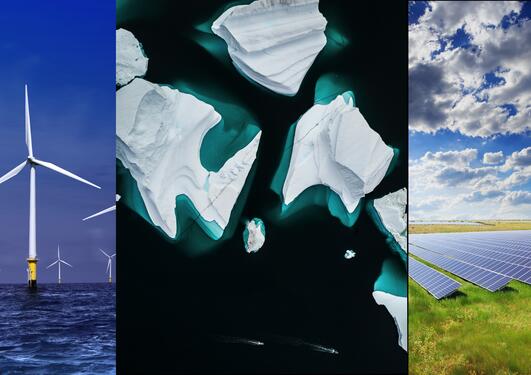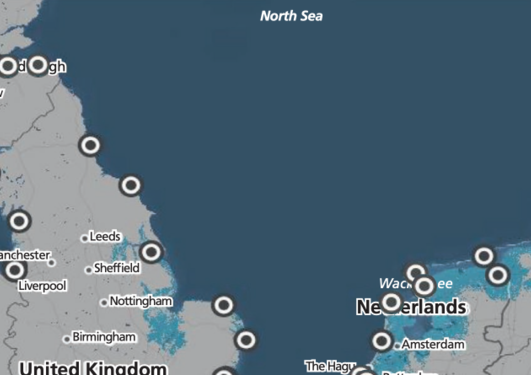Energy Director Kristin Guldbrandsen Frøysa in Brussels
UiB’s Energy Director Kristin Guldbrandsen Frøysa visited Brussels mid-October for a meeting with the newly elected EERA executive committee.

Main content
The energy transition is not only one of three strategic priority areas of the University of Bergen, but it is also a key priority at the European level. UiB’s Energy Director Kristin Guldbrandsen Frøysa visited Brussels the 18th and 19th of October for a meeting with the newly elected EERA executive committee (EERA ExCo), and in connection with her academic contribution to the EERA white paper “Clean Energy Transition” which was published Wednesday this week. We have had a conversation with her about her position in the EERA ExCo, UiB’s role in the energy transition and our priorities at the European level.
The European Energy Research Alliance (EERA)
Guldbrandsen Frøysa was elected member of the new Executive Committee during the 11th General Assembly of The European Energy Research Alliance (EERA) in May 2021, and will represent the University of Bergen for the period 2021-2024. The ExCo functions as one of the two governing bodies of EERA together with the EERA Secretary General. Together, the bodies decide the strategic direction of the alliance towards carbon neutrality.

Phillippe Close, the mayor of the city of Brussels, speaking at the EERA high-level policy conference "The Clean Energy Transition: From Vision to Reality" on the 20th of October.
This week's visit in Brussels
Dr. Kristin Guldbrandsen Frøysa was in Brussels for a meeting with the EERA ExCo this Tuesday. Guldbrandsen Frøysa is pleased that UiB has been elected for the position and adds that EERA is of high priority and importance for UiB. The opportunity to be represented in this committee allows for UiB to bring in a broad perspective from the approaches of natural sciences, law, social sciences and humanities to the clean energy transition. For the UiB it is also important to put emphasis on resource mapping and bringing the educational perspective of a university in, in order to achieve the best possible energy research in Europe.
Together with Sintef, represented by Nils Røkke, UiB is also able to use this arena to represent Norwegian and North European perspectives and interests in climate research and the clean energy transition.
UiB and the EU
All initiatives from the EU related to the clean energy transition, technology development and digitalization are of great importance to UiB, according to Guldbrandsen Frøysa. She highlights hydrogen and ammonia, offshore wind energy and taxonomy policies of the EU as particularly relevant for the university.
Additionally, Guldbrandsen Frøysa underlines the value of striving for social sustainability and protection of the earth’s biodiversity while aiming to reduce climate gas emissions.
UiB's role in the clean energy transition
For the international climate research and clean energy transition, UiB provides interdisciplinary research on central energy fields such as hydrogen and ammonia, bioenergy, deep geothermic energy, and hydropower. Guldbrandsen Frøysa also underlines the Bergen Offshore Wind Centre (BOW), which gathers all offshore wind energy research at UiB in one research center. This allows for broad collaboration across disciplines, for instance drawing in the perspectives of energy law, EU/EEA law and public procurement law into to UiB’s climate and energy research.
This interdisciplinary approach is reflected in all levels of the university. The integrated master's in Energy and the 2-year Master's in Sustainability, which combined bring together approximately 70 students annually, are testimonies of the increasing demand from motivated students for an interdisciplinary approach to climate change.
Facilitating informed discussions about climate
Beyond these contributions to the transition, UiB’s researchers have a responsibility to facilitate decisions at a systemic level though making their research comprehensible to politicians and regular people. In political discussions such as hydropower development and construction of power cables, factual components can be separated from sentiments through arranging seminars and meetings for politicians and bureaucrats. All topics need to be discussed in order to raise the general level of understanding, according to Guldbrandsen Frøysa.






